
Sir Arthur Seymour Sullivan was an English composer. He is best known for 14 operatic collaborations with the dramatist W. S. Gilbert, including H.M.S. Pinafore, The Pirates of Penzance and The Mikado. His works include 24 operas, 11 major orchestral works, ten choral works and oratorios, two ballets, incidental music to several plays, and numerous church pieces, songs, and piano and chamber pieces. His hymns and songs include "Onward, Christian Soldiers" and "The Lost Chord".

Sir Adrian Cedric Boult, CH was a British conductor. Brought up in a prosperous mercantile family, he followed musical studies in England and at Leipzig, Germany, with early conducting work in London for the Royal Opera House and Sergei Diaghilev's ballet company. His first prominent post was conductor of the City of Birmingham Orchestra in 1924. When the British Broadcasting Corporation appointed him director of music in 1930, he established the BBC Symphony Orchestra and became its chief conductor. The orchestra set standards of excellence that were rivalled in Britain only by the London Philharmonic Orchestra (LPO), founded two years later.
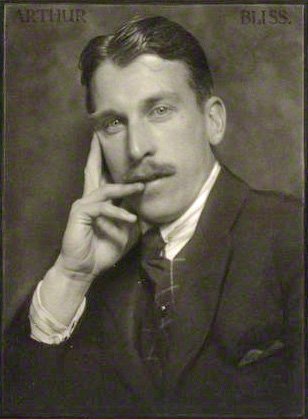
Sir Arthur Edward Drummond Bliss was an English composer and conductor.

Sir Henry Joseph Wood was an English conductor best known for his association with London's annual series of promenade concerts, known as the Proms. He conducted them for nearly half a century, introducing hundreds of new works to British audiences. After his death, the concerts were officially renamed in his honour as the "Henry Wood Promenade Concerts", although they continued to be generally referred to as "the Proms".

Sir Edward German was an English musician and composer of Welsh descent, best remembered for his extensive output of incidental music for the stage and as a successor to Arthur Sullivan in the field of English comic opera. Some of his light operas, especially Merrie England, are still performed.

Sir Granville Ransome Bantock was a British composer of classical music.

Sir Alan Charles MacLaurin Mackerras was an Australian conductor. He was an authority on the operas of Janáček and Mozart, and the comic operas of Gilbert and Sullivan. He was long associated with the English National Opera and Welsh National Opera and was the first Australian chief conductor of the Sydney Symphony Orchestra. He also specialized in Czech music as a whole, producing many recordings for the Czech label Supraphon.
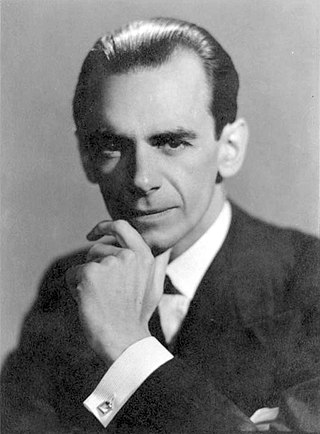
Sir Harold Malcolm Watts Sargent was an English conductor, organist and composer widely regarded as Britain's leading conductor of choral works. The musical ensembles with which he was associated included the Ballets Russes, the Huddersfield Choral Society, the Royal Choral Society, the D'Oyly Carte Opera Company, and the London Philharmonic, Hallé, Liverpool Philharmonic, BBC Symphony and Royal Philharmonic orchestras. Sargent was held in high esteem by choirs and instrumental soloists, but because of his high standards and a statement that he made in a 1936 interview disputing musicians' rights to tenure, his relationship with orchestral players was often uneasy. Despite this, he was co-founder of the London Philharmonic, was the first conductor of the Liverpool Philharmonic as a full-time ensemble, and played an important part in saving the Royal Philharmonic Orchestra from disbandment in the 1960s.
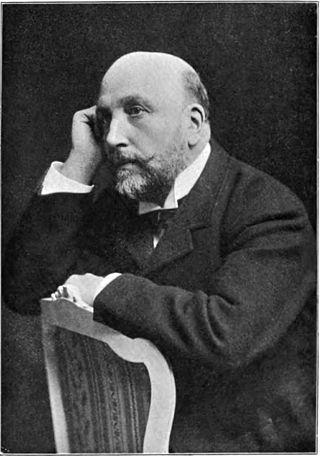
Sir Alexander Campbell Mackenzie KCVO was a Scottish composer, conductor and teacher best known for his oratorios, violin and piano pieces, Scottish folk music and works for the stage.
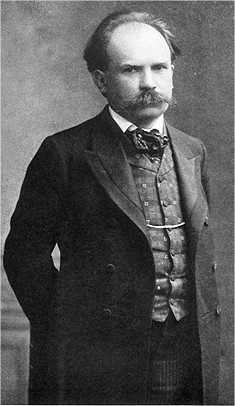
EugenFrancis Charles d'Albert was a Scottish-born pianist and composer who emigrated to Germany.
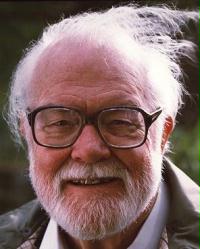
Sir Charles Barnard Groves CBE was an English conductor. He was known for the breadth of his repertoire and for encouraging contemporary composers and young conductors.

The Glyndŵr Award is made for an outstanding contribution to the arts in Wales. It is given by the Machynlleth Tabernacle Trust to pre-eminent figures in music, art and literature in rotation. The award takes its name after Owain Glyndŵr, crowned Prince of Wales at Machynlleth in 1404.
Richard Blackford is an English composer.
David Matthias Lloyd-Jones was a British conductor who specialised in British and Russian music. In 1978 he was a co-founder of Opera North, conducting 50 productions during the 12 years he was there, and was also an editor and translator, especially of Russian operas.

The Golden Legend is an 1886 cantata by Arthur Sullivan with libretto by Joseph Bennett, based on the 1851 poem of the same name by Henry Wadsworth Longfellow. The piece premiered at the triennial Leeds Music Festival. At least 17 performances of the cantata were given in Britain during the first year after its premiere in October 1886, and during Sullivan's lifetime it was widely considered his greatest and most successful work of serious music. Indeed, outside of the comic operas with W. S. Gilbert, this cantata was widely regarded as Sullivan's most successful large-scale composition.

Edward Geoffrey Toye, known as Geoffrey Toye, was an English conductor, composer and opera producer.
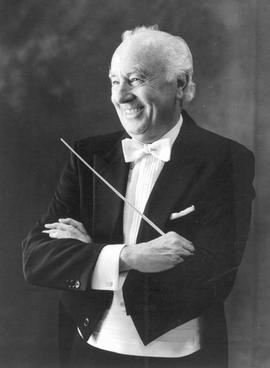
Royston Hulbert Nash was an English-born conductor, best known as a music director of the D'Oyly Carte Opera Company and, later, as the conductor of the Cape Cod Symphony Orchestra.
Terence Albert Ladd Rees was a microbiologist but was best known as a collector of material relating to the theatre and music in Wales and Britain. He was also a published theatre historian and researcher, and, in particular, was an authority on the works of W. S. Gilbert and Arthur Sullivan who, as Gilbert and Sullivan, wrote 14 comic operas in the late Victorian era.

The Prodigal Son is an oratorio by Arthur Sullivan with text taken from the parable of the same name in the Gospel of Luke. It features chorus with soprano, contralto, tenor and bass solos. It premiered in Worcester Cathedral on 10 September 1869 as part of the Three Choirs Festival.
Marjorie Gwendolen Thomas was an English opera and oratorio singer for almost three decades. She sang at the Royal Opera House and was a regular performer at the Promenade Concerts and the Three Choirs Festivals and, for many years, a professor of singing at London's Royal Academy of Music. A favourite soloist of Sir Malcolm Sargent's, she also participated in a number of recordings of Gilbert and Sullivan operas.
















